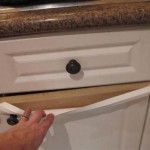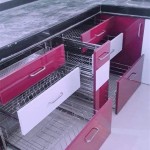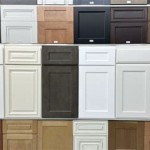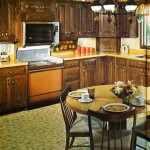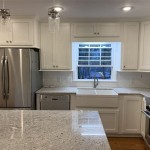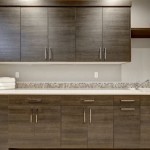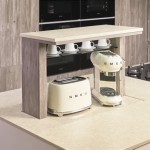Menards Kitchen Cabinet Countertops: A Comprehensive Guide
When undertaking a kitchen renovation, the selection of countertops is a critical decision that significantly impacts both the aesthetics and functionality of the space. Menards, a popular home improvement retailer, offers a wide variety of kitchen cabinet countertops to suit diverse budgets, styles, and performance requirements. Understanding the available options, their characteristics, and associated considerations is essential for homeowners seeking to make an informed purchase.
This article provides a comprehensive guide to Menards kitchen cabinet countertops, exploring the different materials, their pros and cons, installation considerations, and maintenance requirements. This information aims to empower consumers to choose the best countertop solution for their individual needs and preferences.
Exploring the Material Options
Menards offers a diverse range of countertop materials, each possessing unique properties and aesthetic qualities. Common options include laminate, solid surface, quartz, granite, butcher block, and stainless steel. Each material has its own set of advantages and disadvantages which should be carefully considered.
Laminate: Laminate countertops are a cost-effective option consisting of a thin layer of decorative plastic bonded to a particleboard or MDF core. Laminate is available in a wide array of colors, patterns, and textures, including those that mimic natural stone or wood. It is relatively easy to clean and maintain, requiring only mild soap and water. However, laminate is susceptible to scratches, stains, and heat damage, making it less durable than other countertop materials. Its seams are often visible and can be prone to water damage if not properly sealed.
Solid Surface: Solid surface countertops, such as Corian, are made from acrylic or polyester resins combined with mineral fillers. This composition results in a non-porous, seamless surface that is resistant to stains and bacteria. Solid surface countertops are available in a variety of colors and patterns, and scratches can often be buffed out. They are also heat-resistant, although prolonged exposure to high temperatures should be avoided. Solid surface is more expensive than laminate but offers better durability and a more upscale appearance.
Quartz: Quartz countertops are engineered stone products made from approximately 90-95% ground quartz crystals and 5-10% resins and pigments. This combination creates a highly durable, non-porous surface that is resistant to scratches, stains, and heat. Quartz countertops are available in a wide range of colors and patterns, including those that mimic natural stone like granite and marble. They are relatively easy to maintain, requiring only mild soap and water. Quartz countertops are a popular choice due to their durability, aesthetics, and low maintenance requirements. However, they can be more expensive than laminate or solid surface.
Granite: Granite countertops are natural stone products quarried from the earth. Each slab of granite is unique in its color, pattern, and veining, making it a highly desirable option for homeowners seeking a one-of-a-kind look. Granite is a durable and heat-resistant material, but it is porous and requires sealing to prevent staining. Regular sealing is necessary to maintain its appearance and prevent the absorption of liquids. Granite is also a relatively heavy material, requiring strong cabinet support. While visually appealing, granite can be more expensive than other countertop options, and its natural variations may not appeal to all homeowners.
Butcher Block: Butcher block countertops are made from strips of wood glued together to create a solid surface. They offer a warm and inviting aesthetic that is well-suited for traditional and farmhouse-style kitchens. Butcher block countertops are relatively durable and can be refinished to remove scratches and stains. However, they are susceptible to water damage and require regular oiling or sealing to prevent cracking and warping. Butcher block countertops are also not as heat-resistant as other materials and should be protected from hot pots and pans.
Stainless Steel: Stainless steel countertops are a popular choice for modern and industrial-style kitchens. They are highly durable, heat-resistant, and easy to clean, making them a practical option for busy kitchens. Stainless steel countertops are also non-porous, preventing the growth of bacteria. However, they can be prone to scratches and dents, and their metallic appearance may not appeal to all homeowners. They also tend to show fingerprints and water spots more readily than other materials.
Factors to Consider When Choosing Countertops
Selecting the right kitchen cabinet countertop involves considering several factors beyond material type. Budget, style preferences, usage patterns, and maintenance requirements all play a crucial role in the decision-making process. A careful evaluation of these factors will help homeowners narrow down their options and choose the best countertop solution for their needs.
Budget: The cost of different countertop materials can vary significantly. Laminate is generally the most affordable option, while granite and quartz tend to be more expensive. Solid surface, butcher block, and stainless steel fall somewhere in between. It is important to establish a budget before beginning the selection process and to factor in the cost of installation, which can vary depending on the material and complexity of the project. In addition to the material cost, consumers must also account for the cost of edge treatments, backsplashes, and potential modifications to cabinets to accommodate the new countertops.
Style Preferences: The countertop should complement the overall style of the kitchen. For traditional kitchens, granite, butcher block, or laminate with a natural stone pattern may be suitable choices. For modern kitchens, quartz, stainless steel, or solid surface offer a sleek and contemporary look. The color and pattern of the countertop should also be carefully considered to ensure that it coordinates with the cabinets, flooring, and backsplash. It is also important to consider how well the countertop material will integrate with the existing or intended aesthetic of the entire home.
Usage Patterns: The way the kitchen is used should also be considered when choosing a countertop. For busy cooks who frequently prepare meals, a durable and heat-resistant material like quartz or stainless steel may be the best option. For occasional cooks who prioritize aesthetics, granite or butcher block may be more suitable. Homeowners with young children may also want to choose a stain-resistant and easy-to-clean material like solid surface or quartz. It is also necessary to consider the potential for spills, impacts, and other forms of wear and tear that the countertop might be subjected to.
Maintenance Requirements: Different countertop materials require different levels of maintenance. Laminate and solid surface are relatively easy to clean and maintain, requiring only mild soap and water. Quartz is also low-maintenance, but granite requires regular sealing to prevent staining. Butcher block requires regular oiling or sealing to prevent cracking and warping. Stainless steel can be prone to scratches and dents and may require special cleaning products to maintain its appearance. Homeowners should choose a countertop material that they are comfortable maintaining. Regular maintenance is crucial for preserving the appearance and extending the lifespan of any countertop material.
Edge Profiles: The edge profile of a countertop can significantly impact its appearance and functionality. Menards offers a variety of edge profiles, including bullnose, eased edge, ogee, and waterfall edge. The choice of edge profile should complement the overall style of the kitchen and the chosen countertop material. A bullnose edge is a rounded edge that is comfortable to lean against, while an eased edge is a square edge that is slightly rounded for safety. An ogee edge is a decorative edge with a curved profile, while a waterfall edge extends the countertop down the sides of the cabinets, creating a dramatic effect. The ease of cleaning and the likelihood of chipping should also be considered when selecting an edge profile.
Installation and Maintenance Considerations
Proper installation and regular maintenance are crucial for ensuring the longevity and performance of kitchen cabinet countertops. It is important to follow the manufacturer's instructions carefully and to use the appropriate tools and materials. For complex installations, it may be advisable to hire a professional installer.
Installation: The installation process will vary depending on the material and the complexity of the project. Laminate countertops can often be installed by DIYers, while granite and quartz countertops typically require professional installation due to their weight and the need for precise cutting and sealing. Solid surface countertops can be installed by either DIYers or professionals, depending on the complexity of the design. Before installation, it is important to ensure that the cabinets are level and properly supported. Any necessary modifications to the cabinets should also be completed before the countertop is installed. Proper sealing is critical for preventing water damage and ensuring the longevity of the countertop.
Sealing: Porous countertop materials like granite and butcher block require regular sealing to prevent staining and water damage. The frequency of sealing will depend on the material and the level of use. Granite countertops typically need to be sealed every one to two years, while butcher block countertops may need to be oiled or sealed more frequently. It is important to use a sealant that is specifically designed for the countertop material and to follow the manufacturer's instructions carefully. A proper seal will help to protect the countertop from spills, stains, and scratches.
Cleaning: The cleaning requirements will vary depending on the material. Laminate and solid surface countertops can be cleaned with mild soap and water. Quartz countertops can be cleaned with a variety of household cleaners, but abrasive cleaners should be avoided. Granite countertops should be cleaned with a pH-neutral cleaner that is specifically designed for natural stone. Butcher block countertops should be cleaned with a damp cloth and then oiled or sealed to prevent drying and cracking. Stainless steel countertops can be cleaned with a stainless steel cleaner and a soft cloth. It is important to avoid using abrasive cleaners or scouring pads on any countertop material, as these can scratch the surface.
Repair: Minor scratches and stains can often be repaired. Solid surface countertops can often be buffed out to remove scratches. Laminate countertops are difficult to repair, and significant damage may require replacement. Quartz and granite countertops can be repaired by a professional stone restoration company. Butcher block countertops can be sanded and refinished to remove scratches and stains. Stainless steel countertops can be repaired by a metalworker, but dents and scratches may be difficult to remove completely. Regular maintenance and prompt repair of any damage will help to extend the lifespan of the countertop.
Selecting the correct kitchen cabinet countertops from Menards requires careful consideration of material properties, budget constraints, style preferences, usage patterns, and maintenance capabilities. By understanding the various options available and thoroughly assessing individual needs, homeowners can make a well-informed decision that enhances the beauty and functionality of their kitchen for years to come.

Emerson Medallion At Menards Cabinets Kitchen

Kitchen KlËarvŪe Cabinetry

Medallion Cabinetry Home Kitchens Frameless Kitchen Cabinets Menards

Reviews On Menards Klearvue Cabinets Kitchen Cabinet Design Home Kitchens

StrÖmma White KlËarvŪe Cabinetry

Pin By Timeline Design On Kitchen Sitting Room Remodel San Jose Mediterranean Building Cabinets Menards

How I Installed My Butcherblock Countertops A Erfly House
Related Posts

